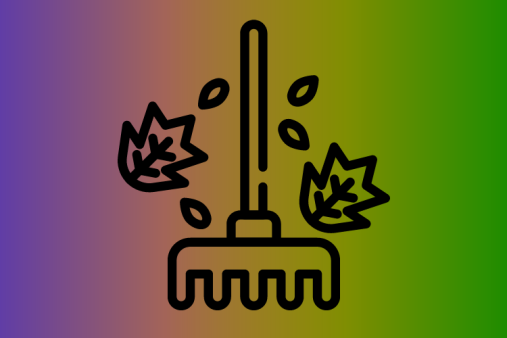How prepared are you for autumn and winter? Most of us have already thought about putting away the summer clothing and getting the winter duvets out of the loft, but is your house as ready for a cold snap as you are? Now is the time to address those maintenance issues and little jobs around the house which you have been putting off over the summer, to try to lessen the risk of problems occurring later on. Don’t worry; many of the things you should be doing won’t take long to do, and preparing your home for Autumn won’t cost much money either.
Many of us look forward to the arrival of the autumn season; with the leaves falling from the trees and the perfect excuse to settle down in the confines of a warm home in the evening. With the return of the autumn months, we unfortunately also have to deal with the cold and wintry weather, which is why you need to adapt your home to suit. There are various measures you can take to keep your home safe and warm, prior to the autumn months arriving.
Insulation and Draught-Proofing
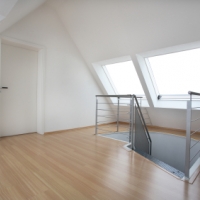 A good level of insulation is key to keeping your home warm over the winter months and could also save you hundreds of pounds from your heating bills too. As soon as the weather turns frosty, insulation companies are bombarded with people wanting extra insulation, so get in before the rush and get you insulation done now. In many cases, home insulation is something you will be able to tackle yourself, and there are lots of products available in DIY stores to help you with this. As well as loft insulation, think about sealing up any gaps around windows or doors using foam strips, and get products to put on the back of the letterbox and under the front door to stop draughts coming in from outside. Installing loft insulation could save you up to £175 a year from your heating bills and draught-proofing your house could save lots more.
A good level of insulation is key to keeping your home warm over the winter months and could also save you hundreds of pounds from your heating bills too. As soon as the weather turns frosty, insulation companies are bombarded with people wanting extra insulation, so get in before the rush and get you insulation done now. In many cases, home insulation is something you will be able to tackle yourself, and there are lots of products available in DIY stores to help you with this. As well as loft insulation, think about sealing up any gaps around windows or doors using foam strips, and get products to put on the back of the letterbox and under the front door to stop draughts coming in from outside. Installing loft insulation could save you up to £175 a year from your heating bills and draught-proofing your house could save lots more.
Check Your Pipes
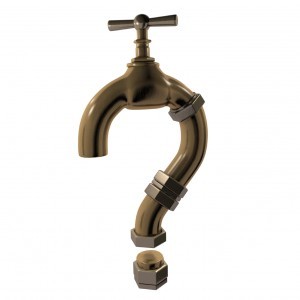 Our last couple of winters here in the UK have been relatively mild, but you only have to think back a few years to remember how many people were affected by burst pipes and flooding in the home. There’s nothing we can do to prevent the weather turning cold, but you can take steps to protect your pipes. If you are thinking about replacing pipes anyway, ask your plumber to recommend pipes which have been designed to expand and contract without cracking. If you are trying to protect existing pipes, look for foam lagging products which are incredibly easy to fit onto the pipes and will help keep the temperature up by just a couple of degrees and hopefully prevent the pipes from bursting. The other essential job is to find your stopcock which controls the flow of mains water into the house. Knowing where the stopcock is, and more importantly knowing how to turn it on and off, will save you time in an emergency situation and will stop any damage becoming worse as you wait for the plumber to arrive.
Our last couple of winters here in the UK have been relatively mild, but you only have to think back a few years to remember how many people were affected by burst pipes and flooding in the home. There’s nothing we can do to prevent the weather turning cold, but you can take steps to protect your pipes. If you are thinking about replacing pipes anyway, ask your plumber to recommend pipes which have been designed to expand and contract without cracking. If you are trying to protect existing pipes, look for foam lagging products which are incredibly easy to fit onto the pipes and will help keep the temperature up by just a couple of degrees and hopefully prevent the pipes from bursting. The other essential job is to find your stopcock which controls the flow of mains water into the house. Knowing where the stopcock is, and more importantly knowing how to turn it on and off, will save you time in an emergency situation and will stop any damage becoming worse as you wait for the plumber to arrive.
Give your Central Heating the Once Over
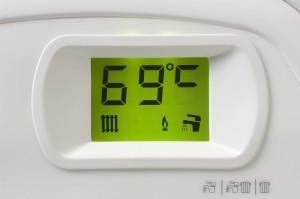 Your central heating has had a good rest over the summer, so it’s perhaps unsurprising that so many people experience problems when they try to fire up their heating for the first time when the weather turns cold. There are a couple of jobs which you can do to minimise the risk of boiler breakdown just when you need it most, and to make sure it is running efficiently too. The first of these is to get someone out to service your boiler. If you have an insurance policy which protects you against boiler breakdown these often include a boiler service, so make sure you have had yours serviced before the winter comes. Secondly, check the radiators throughout the house. Any air which has built up in radiators will stop the radiators heating as efficiently and you will often find that you have radiators which are warm at the bottom and cold at the top. This is easily fixed by bleeding the radiators using a special key and allowing the air to escape from the top. If you lack the confidence or time to do this job yourself, any plumber or heating engineer will be able to do it for you in a couple of hours. You’ll need a good heating system when the cold weather arrives so it is important to ensure this is in working order. Make sure there are no blockages and the filters are clear from dust or debris, then test them to ensure they are working sufficiently.
Your central heating has had a good rest over the summer, so it’s perhaps unsurprising that so many people experience problems when they try to fire up their heating for the first time when the weather turns cold. There are a couple of jobs which you can do to minimise the risk of boiler breakdown just when you need it most, and to make sure it is running efficiently too. The first of these is to get someone out to service your boiler. If you have an insurance policy which protects you against boiler breakdown these often include a boiler service, so make sure you have had yours serviced before the winter comes. Secondly, check the radiators throughout the house. Any air which has built up in radiators will stop the radiators heating as efficiently and you will often find that you have radiators which are warm at the bottom and cold at the top. This is easily fixed by bleeding the radiators using a special key and allowing the air to escape from the top. If you lack the confidence or time to do this job yourself, any plumber or heating engineer will be able to do it for you in a couple of hours. You’ll need a good heating system when the cold weather arrives so it is important to ensure this is in working order. Make sure there are no blockages and the filters are clear from dust or debris, then test them to ensure they are working sufficiently.
Clear the Gutters and Check the Roof
 It’s amazing how much debris can build up in gutters over the course of a year, and if you haven’t cleared out gutters for months or longer, this could mean that water is unable to drain away effectively and might start to cause problems with damp inside the house. Gutter clearing is not a skilled task, and if you have a set of ladders and your roof is not too high, then it is a job you could easily take on yourself. If however, you are not confident when working up a ladder or if the roof of your house is particularly high or difficult to access, then get in a professional roofer to do the job for you. It should take them less than a morning to clear the gutters on an average home, and while they’re up on the roof you can ask them to check for other problems such as cracked tiles or damaged pointing which could cause leaks over the cold weather. Just before autumn is the best time to clear out your gutters, as after this time, you’ll have a lot more rain to deal with. Use a hose and bucket to get rid of any debris so your gutters are as clear as possible before the new season arrives. You may need the help of a professional roofer for this kind of work, if you feel unsafe.
It’s amazing how much debris can build up in gutters over the course of a year, and if you haven’t cleared out gutters for months or longer, this could mean that water is unable to drain away effectively and might start to cause problems with damp inside the house. Gutter clearing is not a skilled task, and if you have a set of ladders and your roof is not too high, then it is a job you could easily take on yourself. If however, you are not confident when working up a ladder or if the roof of your house is particularly high or difficult to access, then get in a professional roofer to do the job for you. It should take them less than a morning to clear the gutters on an average home, and while they’re up on the roof you can ask them to check for other problems such as cracked tiles or damaged pointing which could cause leaks over the cold weather. Just before autumn is the best time to clear out your gutters, as after this time, you’ll have a lot more rain to deal with. Use a hose and bucket to get rid of any debris so your gutters are as clear as possible before the new season arrives. You may need the help of a professional roofer for this kind of work, if you feel unsafe.
Cracks and Gaps
Many of us look forward to the arrival of the autumn season; with the leaves falling from the trees and the perfect excuse to settle down in the confines of a warm home in the evening. With the return of the autumn months, we unfortunately also have to deal with the cold and wintry weather, which is why you need to adapt your home to suit. There are various measures you can take to keep your home safe and warm, prior to the autumn months arriving.
The sight of gaps and cracks is not only displeasing for the aesthetics of the home, it is also the easiest way for rain and cold to enter the building. Prior to autumn arriving, have a good look around the building and check for any cracks or gaps, which may be causing a draught. Make sure these are sealed up as tightly as possible, otherwise you will be likely to spend the winter with a cold.
Rake The Garden
The sight of falling leaves, with their array of glorious colours can be a sight to behold, but without proper care and attention, they can easily cause havoc when the autumn arrives. Take care of any falling leaves by using a rake to gather them up and bin them, so they are out your way for good. Leaves can lead to slips and falls when the rain falls, so it is a good idea to get rid of these as soon as possible. If you're struggling to find the time you can compare quotes from local gardeners.
Fireplace and Chimneys
In order to prevent draughts, it is important to ensure you take care of those hidden places such as the fireplace and chimney. These will need a good clean to get rid of dust and debris and may require some assistance from a professional.
Extra Blankets and Covers
No matter how good your heating system is, it is better to be safe than sorry by investing in some good quality additional covers and blankets for the home. There is nothing nicer than relaxing in front of the TV in the comfort of the home when the weather is freezing, but you don’t want to spend your time chittering under a single blanket. You can’t go wrong with extra covers, especially if there are children in the home.
Review your Emergency Information and Insurance
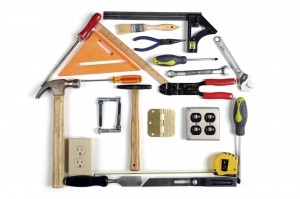 Before winter arrives, check your insurance policy to see what is covered, and more importantly, what is excluded. If you live in an area liable to flood, is it really worth having a policy which excludes flood damage? Do you want to pay a bit extra to cover you for burst pipes and home emergencies like broken boilers? There are no right or wrong answers to these questions, but take time to think about your personal circumstances and check that you are happy with the level of cover provided by your insurer. Make sure also that you have a list readily to hand of those important numbers you might need in the event of something going wrong at home, such as slates coming off the roof in a storm or a boiler breaking own. Make sure you have items like candles or torches at home to help you cope with a power cut, and check that you are on the best value tariff for your electricity and gas so that you are not paying more than you have to for your winter fuel bills.
Before winter arrives, check your insurance policy to see what is covered, and more importantly, what is excluded. If you live in an area liable to flood, is it really worth having a policy which excludes flood damage? Do you want to pay a bit extra to cover you for burst pipes and home emergencies like broken boilers? There are no right or wrong answers to these questions, but take time to think about your personal circumstances and check that you are happy with the level of cover provided by your insurer. Make sure also that you have a list readily to hand of those important numbers you might need in the event of something going wrong at home, such as slates coming off the roof in a storm or a boiler breaking own. Make sure you have items like candles or torches at home to help you cope with a power cut, and check that you are on the best value tariff for your electricity and gas so that you are not paying more than you have to for your winter fuel bills.







